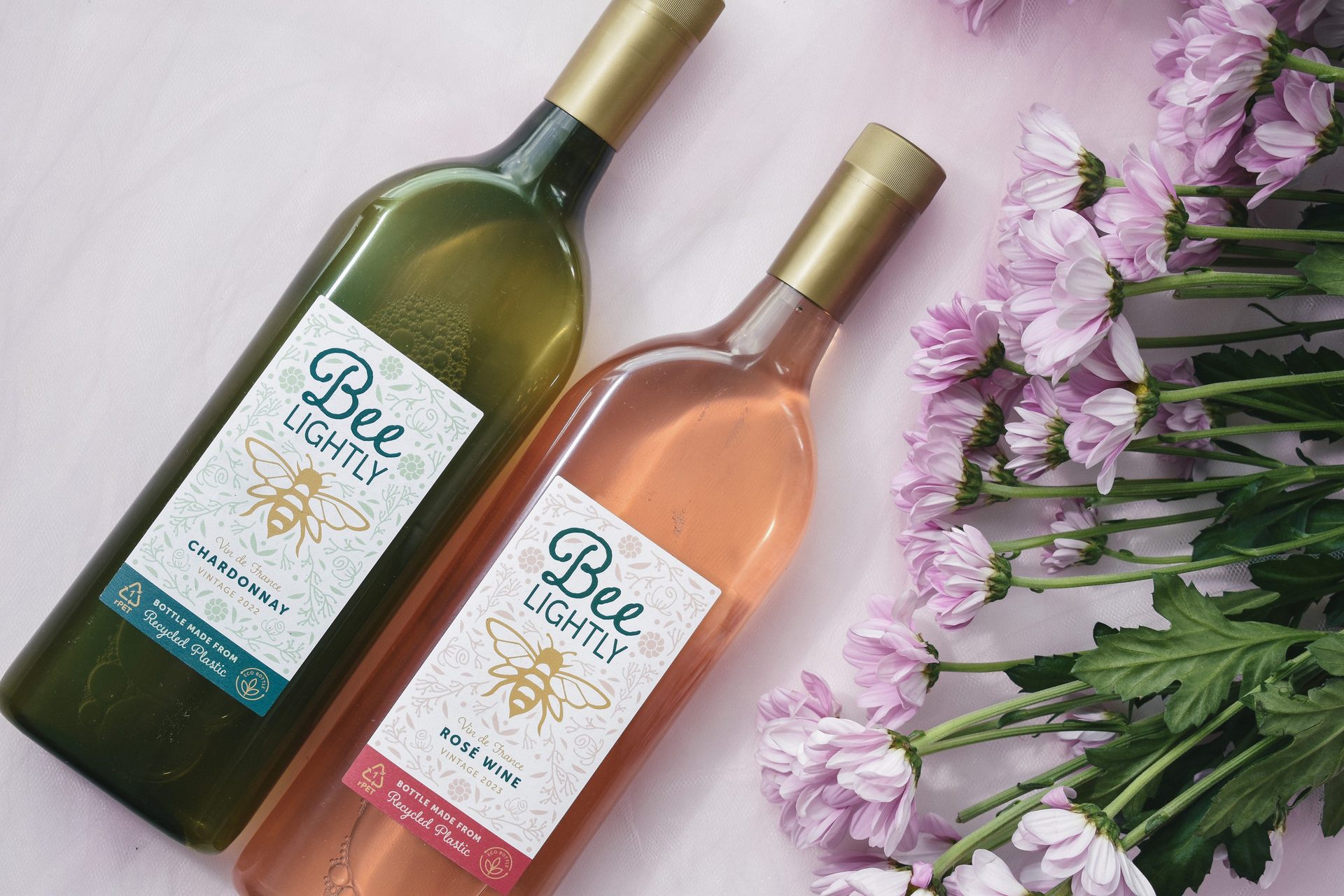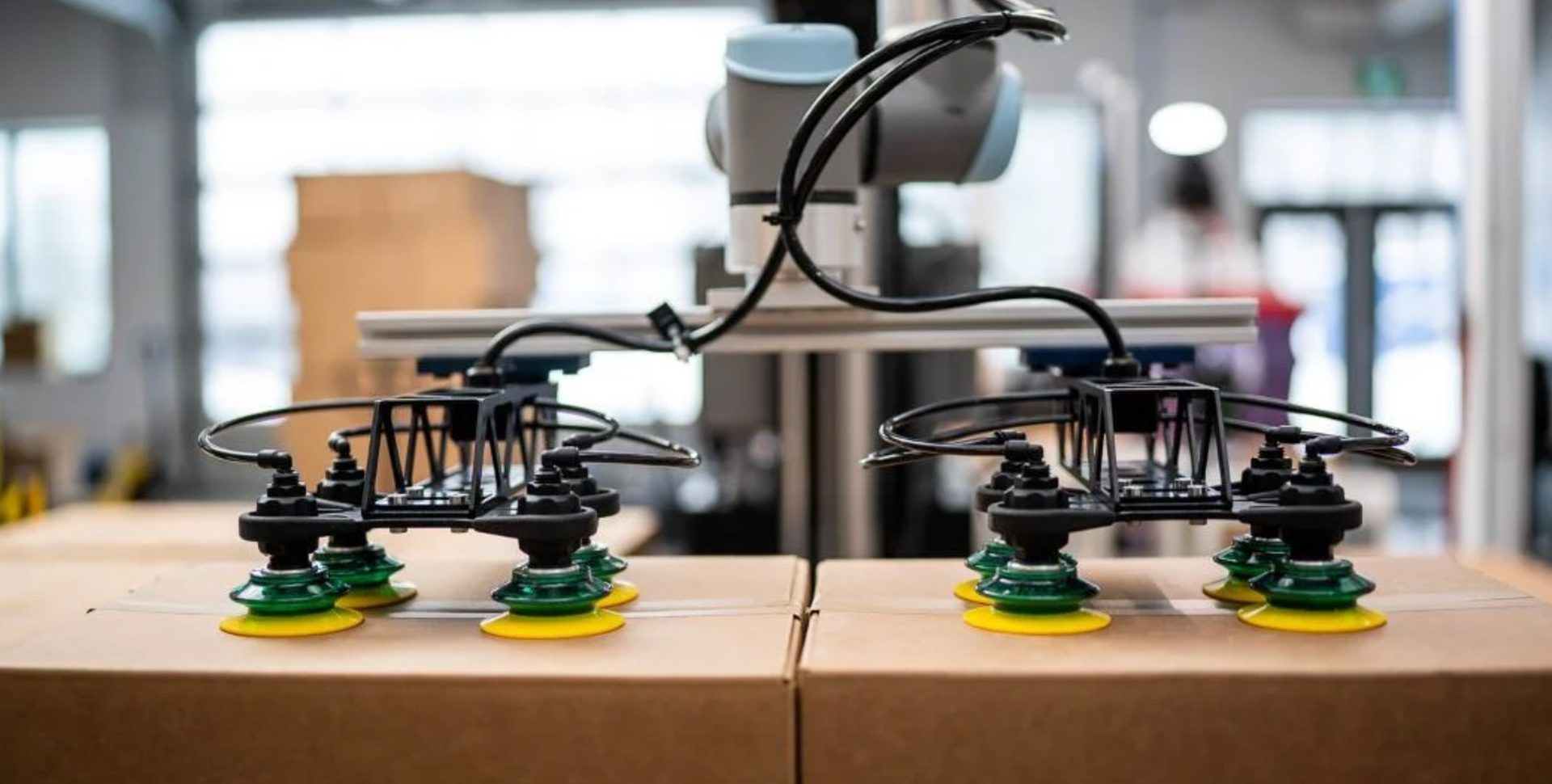
Countless Routes to Sustainability
From alternative wine packaging to more efficient ways to print expiration dates on beer bottles, 2024 displayed the enterprising spirit of companies determined to push the envelope on sustainable beer, wine and spirits packaging.
By Brad Addington
2024 was rife with innovation when it comes to beer, wine and spirits packaging. Many of the headline-making developments had the common theme of sustainability — not to mention the perennially important theme of ensuring product quality.
Archer Roose and ecoSIP offer two different but equally intriguing approaches to wine packaging.
Archer Roose is so committed to the success of the burgeoning canned wine market that it collaborated with Cornell University on a groundbreaking study that promises to set unprecedented standards for canned wine packaging. The collaboration is breaking new ground in the science of maintaining wine freshness in cans, focusing particularly on optimizing sulfite levels.
Like Archer Roose, ecoSIP sees the advantages of single wine servings, albeit with different packaging. Its unique containers are lightweight and space-efficient, cutting transportations costs and making them ideal for wine samples and by-the-glass programs in restaurants, pubs, and meal delivery services, all while preserving the quality of the wine.
From alternative wine packaging to more efficient ways to print expiration dates on beer bottles, 2024 displayed the enterprising spirit of companies determined to push the envelope on sustainable beer, wine and spirits packaging.
By Brad Addington
2024 was rife with innovation when it comes to beer, wine and spirits packaging. Many of the headline-making developments had the common theme of sustainability — not to mention the perennially important theme of ensuring product quality.
ecoSIP sees the advantages of single wine servings, albeit with different packaging. Its unique containers are lightweight and space-efficient, cutting transportations costs and making them ideal for wine samples and by-the-glass programs in restaurants, pubs, and meal delivery services, all while preserving the quality of the wine.
Also in wine packaging, retailer Albertsons announced in September the launch of Bee Lightly, the newest addition to the company’s Own Brands wine portfolio, distinguished by its unique flat bottle design crafted from 100% recycled polyethylene terephthalate (PET).
ADVERTISEMENT
Generally speaking, efficient packaging operations can translate to a lower carbon footprint. That’s one reason why Four Peaks brewery — which prints expiration dates on every can or bottle — was happy to switch to LEIBINGER's innovative printing technology. Thanks to the patented nozzle seal technology in LEIBINGER printers, clogs are now a thing of the past, ensuring smooth, uninterrupted production and maximum efficiency.
Finally: Call it a jigsaw puzzle or a Rubik’s Cube, but one challenge of recycling presentation tubes for spirits has been the material duality of a paper body and a metal base. McLaren Packaging tackled that challenge and fittingly took the top spot for Innovation in Packaging at the Spirits Business Awards.
The old saying is that the devil is in the details. In this case, the ingenuity of these beer, wine and spirits packaging solutions is in the details, so check out the full stories below.
Rethinking Wine Packaging with Archer Roose
By Brad Addington
As someone who typically drinks bottled wine, I was intrigued by the opportunity to interview Marian Leitner-Waldman, Co-Founder and CEO of Archer Roose — a pioneer in the premium canned wine industry. Archer Roose has been making waves with their innovative approach to wine packaging, and it was fascinating to dive into the many advantages of canned wine, a subject they’ve championed since the brand’s inception.
I first learned about Archer Roose because of their collaboration with Cornell University on a groundbreaking study that promises to set new standards for improving canned wine packaging across the entire industry. In our conversation, Leitner-Waldman provided insightful answers about why Archer Roose is openly sharing the findings of this study and why canned wine is poised to reshape the way consumers enjoy wine.
READ MORE
Why Archer Roose Embraced Canned Wine
“The story really starts around my dining room table. It was a Monday night, and I really wanted to have a glass of wine, but I had an early morning business trip, and I didn’t want to open a bottle and leave it to rot in my fridge,” Leitner-Waldman explains. “Our journey to embracing canned wines was really driven by this desire to make a high-quality wine more accessible, sustainable, and aligned with modern lifestyles.”
Leitner-Waldman adds: “We want to control how much we drink. From the beginning, we realized there was a big gap in the market, and we wanted to create a product and a brand that maintains the exceptional quality of wine while also offering convenience, affordability and lowering the environmental impact.”
Why Share the Results of the Study
Archer Roose’s collaboration with Cornell University is breaking new ground in the science of maintaining wine freshness in cans, focusing particularly on optimizing sulfite levels. That’s why Archer Roose is sharing the results of the study with the entire industry.
“In order for consumers to adopt canned wines, they’ve got to have an enjoyable sensory experience,” Leitner-Waldman says. “In order for alternative packaging to really be seen as a viable alternative to bottled wine, you can’t have a bad experience with canned wine.”
And why exactly does canned wine have a lower environmental impact than bottled wine?
“Most municipalities don’t recycle glass in the United States, but thanks to Coke and Pepsi, everybody recycles aluminum,” Leitner-Waldman notes.
For a deeper dive into Marian Leitner-Waldman’s thoughts on the future of wine packaging and the Cornell study, listen to the full podcast here.
Archer Roose’s collaboration with Cornell University is breaking new ground in the science of maintaining wine freshness in cans.
Courtesy of Archer Roose

COLLAPSE ARTICLE ABOVE
ecoSIP Reimagines Wine Packaging
By Alex Taylor, co-founder of ecoSIP
UK-based ecoSIP®, a pioneer in sustainable wine packaging, has announced its rebrand, reflecting a renewed commitment to revolutionizing the wine industry with innovative, eco-friendly solutions. The relaunch is bolstered by the appointment of Ray O’Connor, Master of Wine, as non-executive director, bringing over a decade of retail experience to the company.
Previously known as The Online Wine Tasting Company and established in 2020, ecoSIP aims to lead in sustainable packaging, protecting wine quality while addressing environmental and economic concerns.
READ MORE
Its unique containers are responsible for 100 times less CO2 emissions than standard glass bottles* and save over 80% on the upcoming EPR (Extended Producer Responsibility) taxes**, significantly reducing waste and cost. Their lightweight, space-efficient design cuts transportation costs, making them ideal for wine samples and by-the-glass programs in restaurants, pubs, and meal delivery services, all while preserving the quality of the wine perfectly.
The relaunch of ecoSIP is further strengthened by its new governance structure. Ray O’Connor, Master of Wine, with over 10 years of retail experience, brings unparalleled expertise to the company. Magda Bulska, as a board advisor, adds her experience in external communications for B2B brands. They join founders Alex Taylor and Jamie Smith, along with Ib Schjotz-Pedersen, who also serves as a non-executive director.
Alex Taylor, co-founder of ecoSIP, commented:
“ecoSIP is the most important breakthrough in wine packaging in decades. No longer do we need to think of glass as the only way to package glass without compromising on quality, so it was only right that our company name reflected this breakthrough. We are thrilled to relaunch under our new brand and with a renewed focus on sustainability and innovation. Having produced and shipped over 1 million portions of thousands of different wines, we have mastered how to protect even the most challenging of drinks, such as the low-alcohol category, which is surging in popularity. Our new team members bring invaluable expertise that will help us drive growth as well as significant change and carbon reduction in the wine industry.”
Ray O’Connor, Master of Wine, added:
“ecoSIP represents a groundbreaking approach to drinks packaging. I am excited to be part of a company that is not only committed to protecting the environment but also to enhancing the quality and accessibility of wine, especially in the single-serve space, which has unique challenges. We will be focusing on expanding relationships with the wine and retail industries, and working together to offer consumers a new way to enjoy a mid-week meal with an interesting glass of premium wine in a mindful way, without the need to buy or open a full bottle.”
Developed over four years of extensive research and testing, ecoSIP weighs and measures a fraction of conventional packaging, allowing new delivery models such as letterbox wine packs, making it perfect for wine producers and distributors, supermarkets, wine educators, and wine regions looking to embrace sustainable practices.
*Compared with a typically-sized glass wine bottle used in the UK market.
**The EPR fees for 6 x 750ml glass bottles in a cardboard box would be between 7.7p and 15p per bottle. The same amount of wine in 36 x 125ml ecoSIP pouches would add up to 1-2p per bottle equivalent.
Top left: Magda Bulska, ecoSIP board adviser, with an ecoSIP wine container.
Bottom left: Ray O’Connor, Master of Wine at ecoSIP
Right: ecoSIP containers’ lightweight design cuts transportation costs and makes them ideal for wine samples and by-the-glass programs in restaurants and pubs, all while preserving the quality of the wine.
Courtesy of ecoSIP
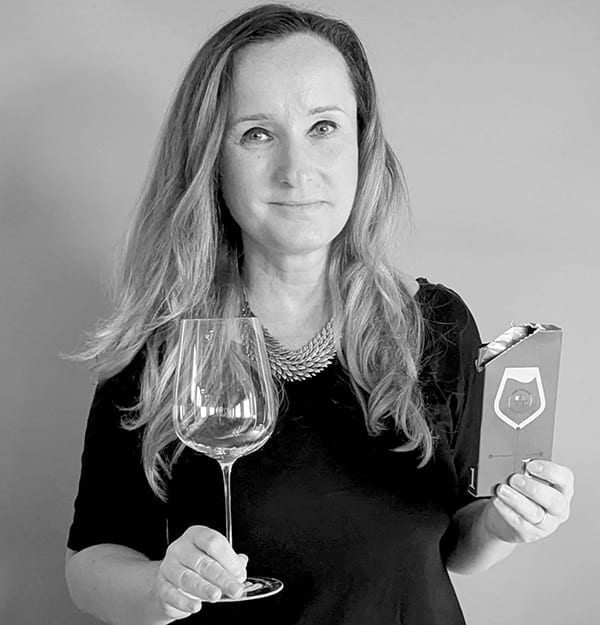
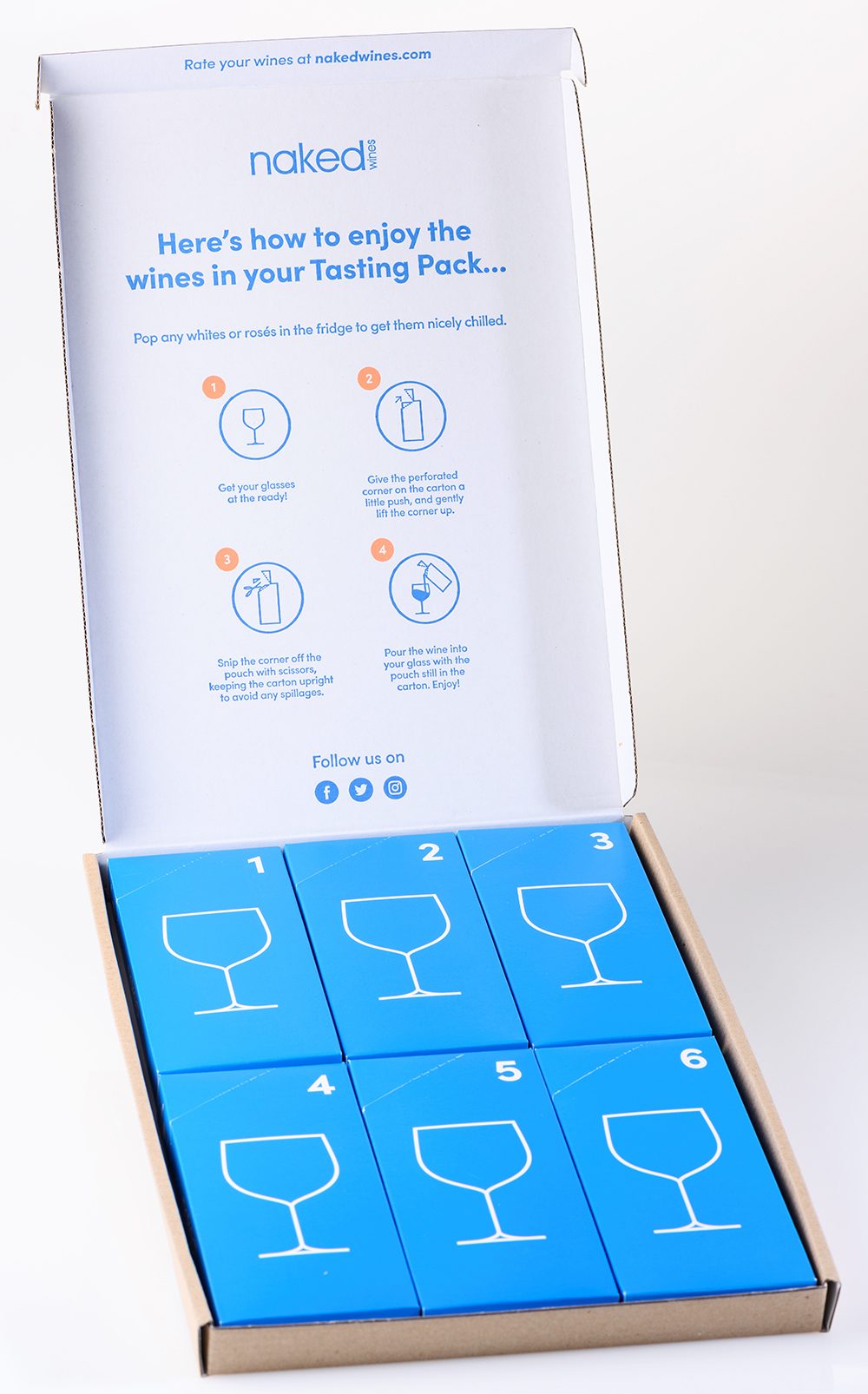

COLLAPSE ARTICLE ABOVE
Four Peaks Brewing Company sees enhanced coding efficiency with LEIBINGER
Production downtime and unforeseen costs due to faulty marking systems posed significant challenges for Arizona's largest brewery, Four Peaks. Frequent printhead clogs severely impacted production efficiency. The solution came with the switch to LEIBINGER's innovative printing technology. Thanks to the patented nozzle seal technology in LEIBINGER printers, clogs are now a thing of the past, ensuring smooth, uninterrupted production and maximum efficiency.
At the vanguard of the craft beer industry in the US, Four Peaks is the largest brewer in Arizona and has built a loyal following since it was founded in 1996. Famous for beers such as Kilt Lifter and Wow Wheat, it was acquired in 2016 by beverage giant Anheuser Busch. Four Peaks is therefore not just the creator of awesome beers; it is a modern and highly efficient business, and the person responsible for ensuring high levels of both quality and quantity is Gary Fogg, Head of Production since 2018.
The challenge: A fresh approach to coding
To enjoy craft beer at its best, you need to drink it fresh. The brewery therefore prints expiration dates on every can or bottle, which encourage customers to consume the beer within 120 days of leaving the brewery. This helps to ensure quality — but it can also create a headache for people like Gary because printing the expiration date can be problematic unless you have the right equipment. With LEIBINGER printers on every production line, Gary now enjoys problem-free operation, but it wasn’t always this way.
READ MORE
Before the LEIBINGER machines were installed, quality issues would often arise as the print heads on the other manufacturers’ printers became clogged. Every 15 minutes, the legibility of the print would be checked. If the expiration date was not perfectly clear, the production line would have to stop for up to an hour while the print head was cleaned.
Even worse, with 250 cans rolling off the line every minute, Gary might find himself with almost 4,000 misprinted beers. That either means unnecessary time and effort washing and re-printing — or the beer gets wasted. And this happened at least once a week, sometimes even every day.
The solution: Listening to the voice of experience
This wasn’t the first time Gary had seen this problem and he had learned early that switching to LEIBINGER would solve it. Starting his career in one of the country’s largest beverage producers, Gary recalls similar problems with coding machines: “We were printing 24/7 and we would struggle with every other brand of printer. There was always one down and it had a big impact on our productivity.” The solution to that problem came from Tim Robinson of RMH Systems, a coding machine specialist, whose advice and support would prove invaluable throughout Gary’s career. Tim replaced the faulty machine with a LEIBINGER to keep production running. Gary came to trust LEIBINGER to work reliably where other brands failed: “Every time he [Tim] would come on site, we would put a LEIBINGER on and it would work straight out of the box.”
Fast forward to 2009 and his new position at Four Peaks, Gary faced the same problems with the same mix of manufacturers — and promptly replaced them with more reliable LEIBINGER printers: “When we first started we had [other printers] and I think both of those are in a dumpster out back. I don’t think I’d do that to one of my enemies.”
The impact on productivity was instant. “When I first started we were doing cleanings every week at least — sometimes every day. Now we don’t even have to do it every month.” Gary admits that the cleaning schedule they follow may even be unnecessary: “Sometimes I think we just clean the heads for fun.”
The sustainability advantage
There were other benefits apart from saving time. Cleaning print heads requires solvent, which can have a harmful impact on the environment. If the print head doesn’t need to be cleaned, you don’t need so much solvent — improving the environmental impact of the plant while also saving money.
Gary also points out the environmental advantage of LEIBINGER cartridges/bottles: “They’re designed to empty completely — so no hazardous waste. With other cartridges, I had to empty residual solvent and ink into a tank and have it pumped out every month by specialists for proper disposal. That takes time and money.”
If you can’t stand the heat...
Breweries can be busy, hot, humid places, which makes coding difficult for some printers — but not LEIBINGER: “I’ve seen LEIBINGER machines working perfectly in possibly the most difficult environment you could find, such as above the pasteurization funnel where the air is damp, hot and dirty. But it still worked fine.”
Another problem arose with the condensation on the outside of pre-filled bottles. This meant that the soft-pigmented yellow ink Gary was using was flaking off instead of sticking to the glass surface. Tim suggested changing to a hard-pigmented silver, which adhered better. He also noted how the choice of LEIBINGER over competitive coders was important: “Once you put a certain ink in there, some machines are not big on changing. You have to change the nozzles, the oscillators, and we would never recommend it. With LEIBINGER you can just flush it out and start again with a different ink.”
The result: A focus on quality
The relationship between Gary and Tim is typical of the personal, local support that LEIBINGER’s partner network brings to customers around the world. LEIBINGER works closely with regional partners who are not only knowledgeable but also highly responsive, usually able to come to the site at short notice and advise on every situation.
Tim also believes that LEIBINGER has a different approach to other coding manufacturers: “It seems like the other manufacturers are always pushing for annual maintenance charges. There’s always something that needs to be changed every year, regardless of use. But LEIBINGER is there to sell printers, not to try and make money on spare parts”
Four Peaks and LEIBINGER make good partners since both companies believe that success comes from quality, a point that Gary summarizes neatly: “At the end of the day, our job is to brew great beer and get it out there to thirsty customers. And coding should be such a simple task. If it’s legible and repeatable and we don’t have downtime, that’s all we need. And that’s what we’ve had for years now with LEIBINGER.”
LEIBINGER printers are used for printing on glass bottles as well as for coding on cans.
Courtesy of Paul Leibinger GmbH & Co. KG
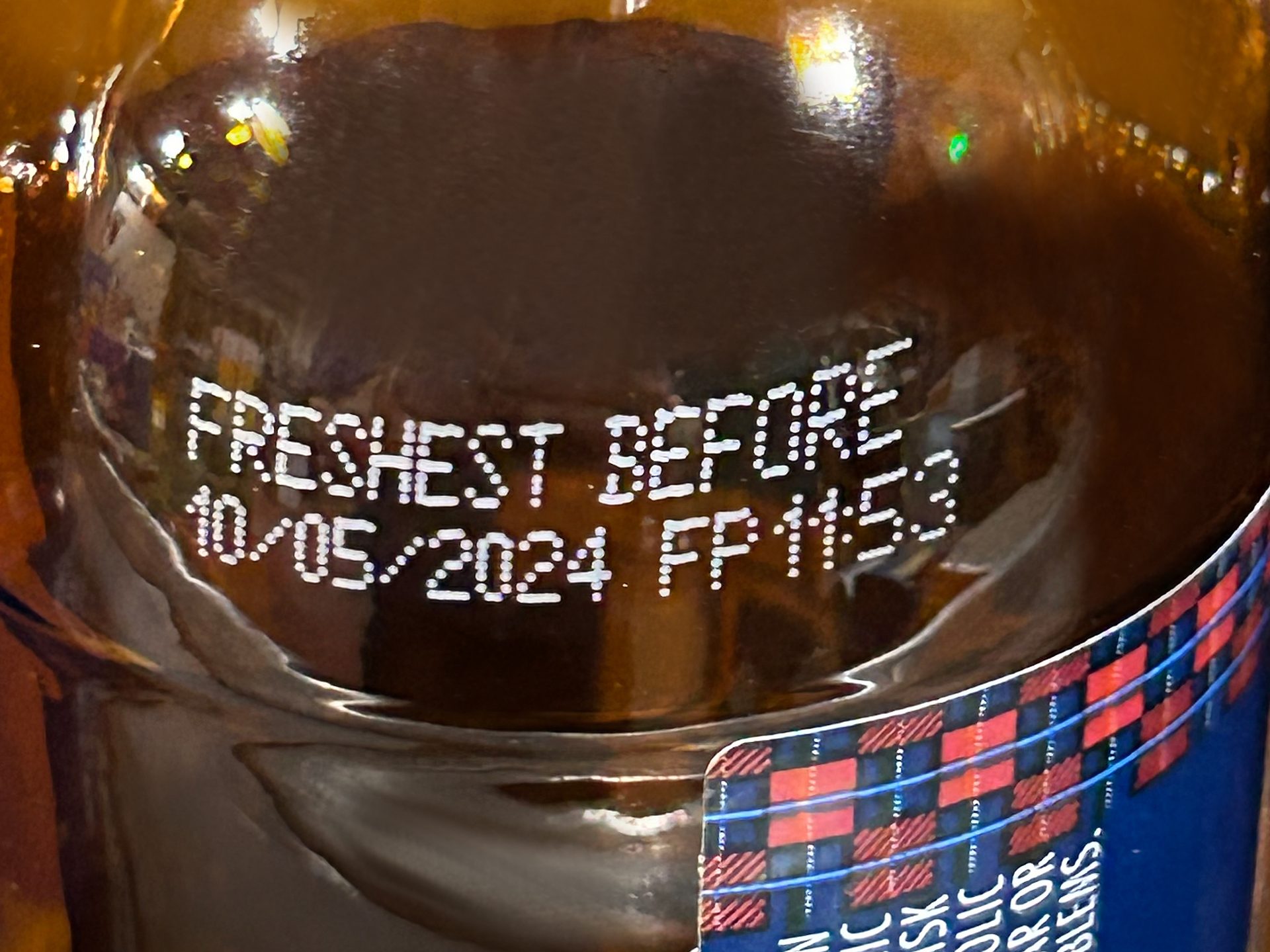
COLLAPSE ARTICLE ABOVE
McLaren Wins for Innovation in Packaging at Spirits Business Awards
McLaren Packaging, a specialist supplier of award-winning, paper-based packaging to the global spirits industry, has won the Innovation in Packaging category at the prestigious Spirits Business Awards 2024 with what has been lauded as a ‘game-changing’ design.
Commenting on McLaren’s innovative packaging solutions, the award judges said: “What stood out most about McLaren was its potential to seriously disrupt the spirits packaging industry with its sustainable, paper-based presentation tubes.
“The vertical perforation on the packaging tubes allows the paper body and metal base to be easily separated and recycled, while retaining a premium look and feel. McLaren Packaging’s design could be a game-changer for the spirits industry.”
McLaren has developed an innovative range of easily recyclable presentation tubes of all shapes and sizes, primarily for distilled spirits.
READ MORE
Gift tubes are synonymous with Single Malt Whisk(e)y and sought after by brand owners where the range of shapes, in particular curved surfaces, allow more unique and creative design opportunities while embellishments are enhanced by the curves.
McLaren’s latest innovations now allow for simpler and easier recycling of the metal and card components — two of the most widely recycled materials globally — and have already been adopted by several well-known global brands.
For its bespoke shaped tubes, McLaren has developed a vertical perforation that allows the paper body and metal base to be easily separated and recycled. This novel solution ensures that the tube can be handled responsibly at end of life and has received approval from On Pack Recycling Label (OPRL) in the UK.
For the traditional round tube with a metal base, the eco-design uses a clever horizontal perforation at the rear of the tube, enabling consumers to effortlessly remove the metal base for recycling.
McLaren has also introduced a mono-material tube with a paper base that can be disposed of without the need for separation. Entirely eliminating the need for metal, the tube can easily be placed directly into the domestic mixed recycling stream.
Both tubes use a high percentage of recycled content, giving end-of-life paper fibers — which otherwise would have been wasted — additional life.
By offering mono-material tubes or including a discreet line of perforations on the pack to separate the body from the base, McLaren has made it easy for disposal in curbside recycling schemes. At the same time, the strength, structure and security of the packaging retains the same high standards that brands and consumers alike have come to expect.
Michael McLaren, sales and marketing director, said: “The creation of innovative packaging solutions and the development of innovative production processes with an emphasis on recyclability are key to our customers' ongoing success. As such, we’re thrilled to win in this fiercely contested category.”
The Spirits Business Awards were created to celebrate and reward excellence across the industry, from retailers and distributors to marketers, brands, distillers and blenders.
McLaren Packaging’s presentation tubes for spirits.
Courtesy of McLaren Packaging
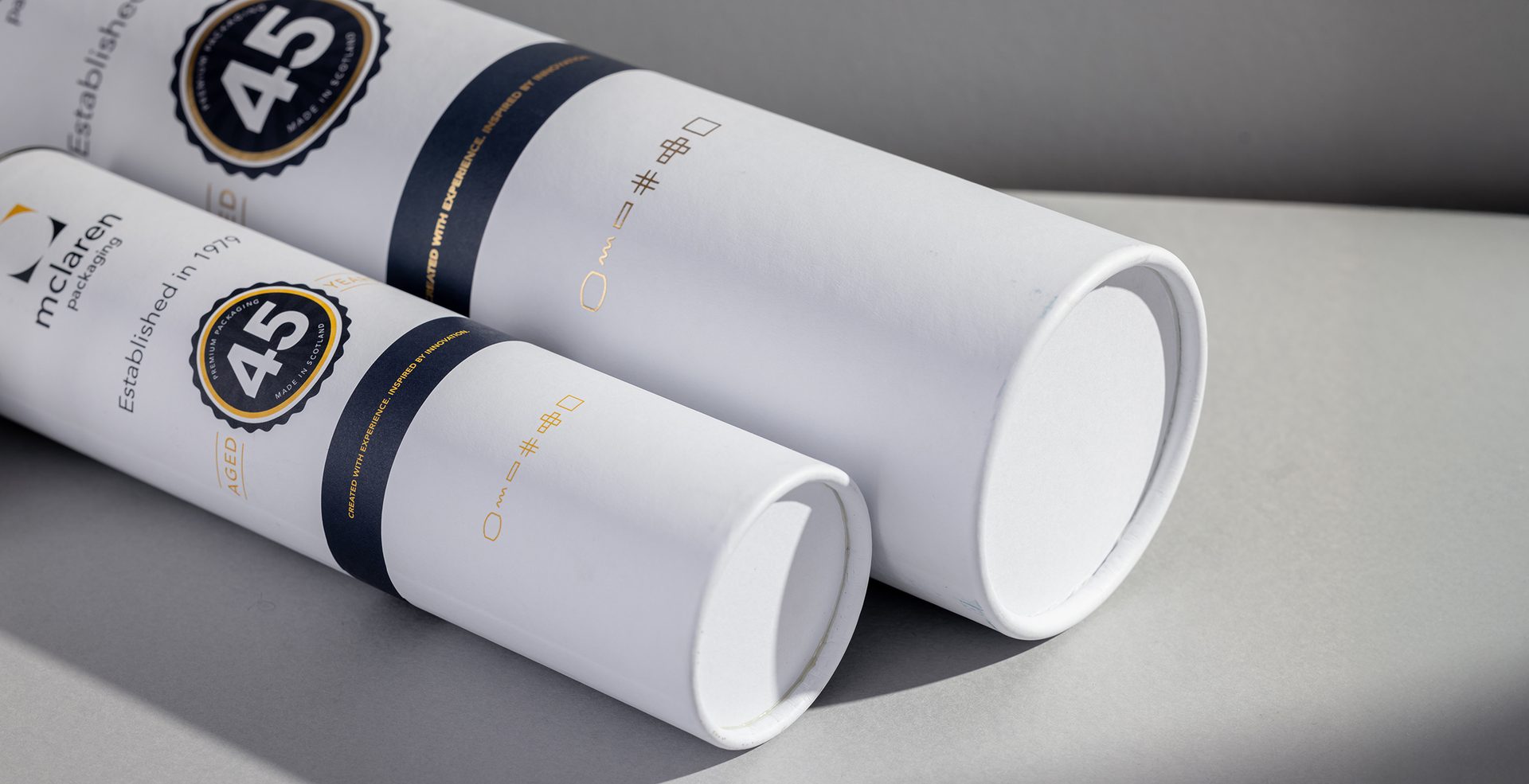
COLLAPSE ARTICLE ABOVE
Albertsons Introduces Flat Bottle Packaging for New Bee Lightly Wines
Albertsons Companies, Inc. has announced the launch of Bee Lightly, the newest addition to the company’s Own Brands wine portfolio, distinguished by its unique flat bottle design crafted from 100% recycled polyethylene terephthalate (PET).
This innovative approach to wine packaging marks a first in the U.S. market, underscoring a commitment to recycled packaging solutions without compromising on the quality and flavor of wine that customers expect. With 91-point ratings from The Tasting Panel, both the 2022 Bee Lightly Chardonnay and the 2023 Bee Lightly Rosé were developed with shoppers in mind, offering acclaimed French wines that are affordable and create a delightful experience with every sip.
“At Albertsons Cos., we are continuously looking for ways to distinguish ourselves within the wine sector and to expand our diverse selection of quality wines for our customers,” said Curtis Mann, Master of Wines at Albertsons Cos. “By launching our new Bee Lightly selection, we are offering shoppers quality, affordable wines from France while also redefining wine packaging standards.”
READ MORE
Bee Lightly is available at select Albertsons Cos. stores including Albertsons, Safeway, Vons, Jewel-Osco and ACME, and for delivery soon through Vine & Cellar in California. The new wines feature carefully selected chardonnay and rosé varietals sourced from the up-and-coming Hérault and Limoux regions.
- Bee Lightly Chardonnay: Harvested at night from a collective of vineyards and fermented in thermoregulated tanks to ensure an optimal environment, the chardonnay offers a unique palate with bright and intense aromas of melons and pears, with a hint of fresh butter and subtle honey and oak balance.
- Bee Lightly Rosé: Capturing the essence of Southern France with its pale salmon color, the rosé presents a perfect pairing for light meals with its compelling flavor profile of fresh red fruit, hibiscus and dried rose petals.
Bringing Bee Lightly wines to Albertsons Cos. stores was a collaborative effort focused on customers. Albertsons Cos.’ Own Brands team, along with Mann, partnered with WX Brands, known for creating wine brands for global retailers, and Packamama, a climate tech packaging company committed to promoting a lower carbon future in the beverage industry, to develop Bee Lightly.
This new line of wines is distinguished by Packamama’s signature flat bottle design, made from recycled PET, a material that is 87% lighter than the material used for traditional glass bottles, and is recyclable. Packamama’s innovative flat packaging design has a smaller environmental footprint compared to conventional wine bottle shapes by reducing transportation related emissions, and the unique flat-pack shape also enhances logistic efficiency, enabling the transportation of nearly twice as many products on a single pallet. Bee Lightly in this Packamama bottle used 44% fewer pallets for shipping compared to standard glass bottles.
“The introduction of Bee Lightly into our Own Brands portfolio marks an innovative partnership and venture into wine packaging, highlighting our dedication to product quality and environmental stewardship,” said Brandon Brown, SVP of Own Brands at Albertsons Cos. “Additionally, we know that consumers today understand and recognize the quality and value that private label products can offer, which is why we’re pleased to unveil Bee Lightly premium wine varietals that deliver on quality and flavor at an affordable price.”
To learn more about Bee Lightly, please click here.
The new Bee Lightly line of wines is distinguished by Packamama’s signature flat bottle design.
Courtesy of Albertsons Companies, Inc.
